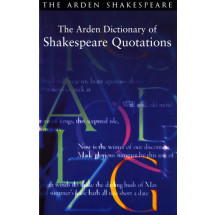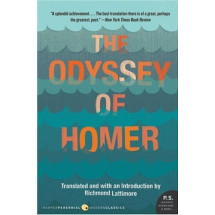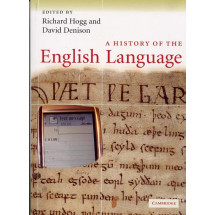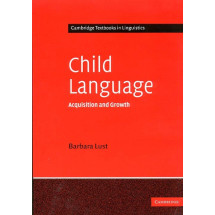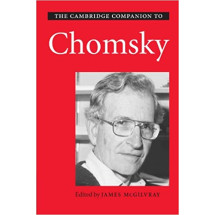FICTION.
"1. Reading a Story.
"
Fable, Parable, and Tales.
W. Somerset Maugham, The Appointment in Samarra.
*Aesop, The Fox and the Grapes.
*Bidpai, The Camel and His Friends.
Chuang Tzu, Independence.
Jakob and Wilhelm Grimm, Godfather Death.
Plot.
The Short Story.
John Updike, A and P.
Writer's Perspective.
John Updike on Writing, Why Write?
Writing Critically.
What's The Plot?
"2. Point of View.
"
William Faulkner, A Rose for Emily.
*Jhumpa Lahiri, Interpreter of Maladies.
James Baldwin, Sonny's Blues.
Eudora Welty, Why I Live at the P.O.
Writer's Perspective.
James Baldwin on Writing, Race and the African-American Writer.
Writing Critically.
How Point of View Shapes a Story.
"3. Character.
"
Katherine Anne Porter, The Jilting of Granny Weatherall.
Alice Walker, Everyday Use.
Raymond Carver, Cathedral.
Writer's Perspective.
Raymond Carver on Writing, Commonplace but Precise Language.
Writing Critically.
How Character Creates Action.
"4. Setting.
"
Kate Chopin, The Storm.
Jack London, To Build a Fire.
T. Coraghessan Boyle, Greasy Lake.
Amy Tan, A Pair of Tickets.
Writer's Perspective.
Amy Tan on Writing, Setting the Voice.
Writing Critically.
How Time and Place Set a Story.
"5. Tone and Style.
"
Ernest Hemingway, A Clean, Well-Lighted Place.
William Faulkner, Barn Burning.
Irony.
Guy de Maupassant, The Necklace.
Ha Jin, Saboteur.
Writer's Perspective.
Ernest Hemingway on Writing, The Direct Style.
Writing Critically.
Be Style Conscious.
"6. Theme.
"
Stephen Crane, The Open Boat.
*Alice Munro, Day of the Butterfly.
Luke 15: 11-32, The Parable of the Prodigal Son.
Kurt Vonnegut, Jr., Harrison Bergeron.
Writer's Perspective.
Kurt Vonnegut, Jr. on Writing, The Themes of Science Fiction.
Writing Critically.
Stating the Theme.
"7. Symbol.
"
John Steinbeck, The Chrysanthemums.
Shirley Jackson, The Lottery.
*Elizabeth Tallent, No One's a Mystery.
Ursula K. Le Guin, The Ones Who Walk Away from Omelas.
Writer's Perspective.
Ursula K. Le Guin on Writing, On 밫he Ones Who Walk Away from Omelas?
Writing Critically.
Recognizing Symbols.
Writing Assignment.
Student Essay, An Analysis of the Symbolism In Steinbeck's 밫he Chrysanthemums.?
"8. EVALUATING A STORY. Writing Critically. Know What You're Judging. 9. READING LONG STORIES AND NOVELS.
"
Leo Tolstoy, The Death of Ivan Ilych.
Franz Kafka, The Metamorphosis.
Writer's Perspective.
Franz Kafka on Writing, Discussing The Metamorphosis.
Writing Critically.
Leaving Things Out.
Writing Assignment--Research Paper.
Student Essay, Kafka's Greatness.
"10. Two Critical Casebooks: Edgar Allan Poe and Flannery O'Connor.
"
*Edgar Allan Poe.
Edgar Allan Poe, The Tell-Tale Heart.
*Edgar Allan Poe, The Fall of the House of Usher. *Edgar Allan Poe, The Masque of the Red Death.
Edgar Allan Poe on Edgar Allan Poe.
*Edgar Allan Poe, The Tale and Its Effect.
*Edgar Allan Poe, The Philosophy of Composition.
*Edgar Allan Poe, On Imagination.
Critics on Edgar Allan Poe.
Daniel Hoffman, The Father-Figure in 밫he Tell-Tale Heart.?
Marie Bonaparte, A Psychoanalytic Reading of 밫he Masque of the Red Death.?
*Charles Baudelaire, On Poe's Genius.
*James W. Tuttleton, Poe's Quest for Supernal Beauty. Flannery O'Connor.
Flannery O'Connor, Good Country People.
Flannery O'Connor, A Good Man Is Hard to Find.
Flannery O'Connor, Revelation.
Flannery O'Connor on Flannery O'Connor.
Flannery O'Connor, Excerpt from "On Her Own WorkL": The Element of Suspense in 밃 Good Man Is Hard to Find.?
Flannery O'Connor, On Her Catholic Faith.
Flannery O'Connor, Excerpt from "The Grotesque In Southern Fiction": The Serious Writer and the Tired Reader.
Flannery O'Connor, Yearbook Cartoons.
Critics on Flannery O'Connor.
Robert Brinkmeyer Jr., Flannery O'Connor and Her Readers.
J. O. Tate, A Good Source Is Not So Hard to Find: The Real Life Misfit.
Mary Jane Schenck, Deconstructing 밃 Good Man Is Hard to Find?
Kathleen Feeley, Comic Perversion in 밎ood Country People?
Writing Critically.
How One Story Illuminates Another.
"11. Stories for Further Reading.
"
Chinua Achebe, Dead Men's Path.
*Isabel Allende, The Judge's Wife.
Anjana Appachana, The Prophecy.
Margaret Atwood, Happy Endings.
Ambrose Bierce, An Occurrence at Owl Creek Bridge.
Jorge Luis Borges, The Gospel According to Mark.
Willa Cather, Paul's Case.
John Cheever, The Five-Forty-Eight.
Anton Chekhov, The Lady with the Pet Dog.
Kate Chopin, The Story of an Hour.
*Sandra Cisneros, House on Mango Street.
Ralph Ellison, Battle Royal.
*Gabriel Garc? M?quez, The Handsomest Drowned Man in the World.
Charlotte Perkins Gilman, The Yellow Wallpaper.
Nathaniel Hawthorne, Young Goodman Brown.
Zora Neale Hurston, Sweat.
Kazuo Ishiguro, A Family Supper.
James Joyce, Araby.
Jamaica Kincaid, Girl.
D. H. Lawrence, The Rocking-Horse Winner.
Bernard Malamud, Angel Levine.
Katherine Mansfield, Miss Brill.
Bobbie Ann Mason, Shiloh.
Joyce Carol Oates, Where Are You Going, Where Have You Been?
Tim O'Brien, The Things They Carried.
Frank O'Connor, First Confession.
Tillie Olsen, I Stand Here Ironing.
Leslie Marmon Silko, The Man to Send Rain Clouds.
WRITING.
"12. Writing About Literature.
"
Beginning.
Keeping a Journal.
Using Sources and Maintaining Academic Integrity.
Discovering Essay Ideas.
Drafting and Revising, or Creativity Vs. Analysis.
The Form of Your Finished Paper.
Using Spell-Check and Grammar-Check Programs.
Anonymous, after a poem by Jerrold H. Zar, A Little Poem Regarding Computer Spell Checkers.
"13. Writing About a Story.
"
Explicating.
Sample Student Essay (Explication).
Analyzing.
Sample Student Essay (Analysis).
Sample Student Card Report.
Comparing and Contrasting.
Suggestions for Writing.
"*14. Writing a Research Paper.
"
Conducting Research for an Essay.
Evaluating and Using Internet Sources.
Guarding Academic Integrity.
Acknowledging and Documenting Sources.
Concluding Thoughts.
Reference Guide for Citations.
"15. Critical Approaches to Literature.
"
Formalist Criticism.
Cleanth Brooks, The Formalist Critic.
Michael Clark, Light and Darkness in 밪onny's Blues.?
Biographical Criticism.
Virginia Llewellyn Smith, Chekhov's Attitude to Romantic Love.
*Emily Toth, Scandal and Kate Chopin.
Historical Criticism. John King, The Argentine Context of Borges's Fantastic Fiction.
*Barbara T. Christian , Heritage in 밇veryday Use.?
Psychological Criticism.
Sigmund Freud, "The Destiny of Oedipus..?
*Gretchen Schulz and R. J. R. Rockwood, Fairy Tales and 밯here Are You Going, Where Have You Been??
Mythological Criticism.
C.G. Jung, "The Collective Unconscious and Archetypes."
Edmond Volpe, Myth in Faulkner's 밄arn Burning."
Sociological Criticism.
Geo...
X.J. Kennedy, after graduation from Seton Hall and Columbia, became a journalist second class in the Navy ("Actually, I was pretty eighth class"). His poems, some published in the New Yorker, were first collected in Nude Descending a Staircase (1961). Since then he has written five more collections, several widely adopted literature and writing textbooks, and seventeen books for children, including two novels. He has taught at Michigan, North Carolina (Greensboro), California (Irvine), Wellesley, Tufts, and Leeds. Cited in Bartlett's Familiar Quotations and reprinted in some 200 anthologies, his verse has brought him a Guggenheim fellowship, a Lamont Award, a Los Angeles Times Book Prize, an award from the American Academy for Poetry for Children from the National Council of Teachers of English. He now lives in Lexington, Massachusetts, where he and his wife Dorothy have collaborated on four books and five children.
Dana Gioia is a poet, critic, and teacher. Born in Los Angeles, he attended Stanford and Harvard before taking a detour into business. ("Not many poets have a Stanford M.B.A., thank goodness!") After years of writing and reading late in the evenings after work, he quit a vice presidency to write and teach. He has published three collections of poetry: Daily Horoscope (1986); The Gods of Winter (1991); Interrogations at Noon (2001), winner of the 2001 American Book Award; an opera libretto, Nosferatu (2002); several anthologies; and an influential study of poetry's place in contemporary America, Can Poetry Matter? (1992). Gioia has taught at Johns Hopkins, Sarah Lawrence, Wesleyan (Connecticut), Mercer, and Colorado College. He is also the co-founder of the summer poetry conference at West Chester University in Pennsylvania and a frequent commentator on literature for the British Broadcasting Corporation. He currently lives in Santa Rosa, California, with his wife, Mary, two sons, and an ever growing number of cats.
(The surname Gioia is pronounced JOY-A. As some of you may have already guessed, gioia is the Italian word for joy.)



